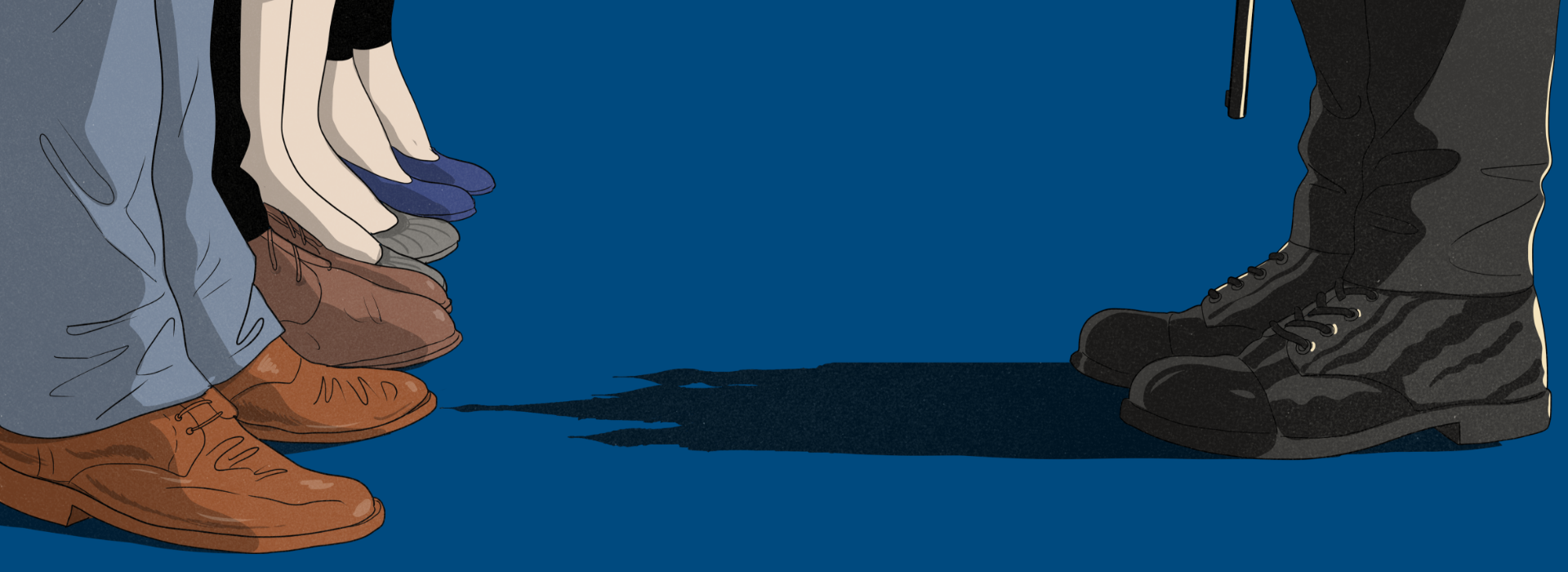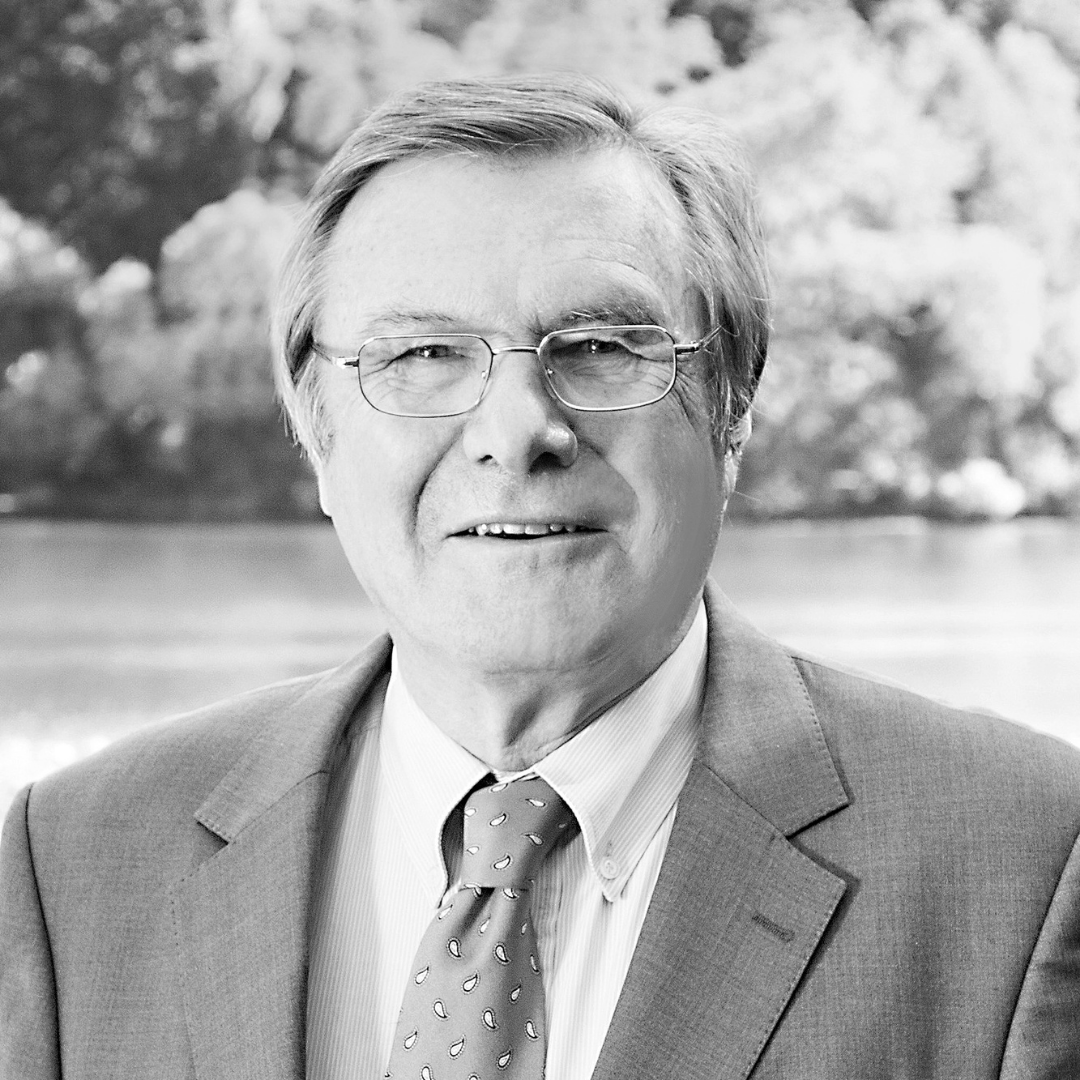
WAR IN EUROPE
A danger to the neighbours
Violence is an established component of the Russian box of tricks. But there is no war in which one wins what the other loses. There is just human suffering for everyone.
TEXT: WOLFGANG GERHARDT
ILLUSTRATION: EMMANUEL POLANCO/SEPIA
WAR IN EUROPE
A danger to the neighbours
Violence is an established component of the Russian box of tricks. But there is no war in which one wins what the other loses. There is just human suffering for everyone.
TEXT: WOLFGANG GERHARDT
ILLUSTRATION: EMMANUEL POLANCO/SEPIA
Until the publication of this magazine, a new chapter of the war between Russia and Ukraine could have been written every day. And the whole story is not even over as I write this article. It has discounted many supposed certainties and forced Germany to look anew at Albert Einstein's theorem that the world is threatened not only by those who are evil, but also by those who permit evil.
Internal and external despotism
Russian ruler Vladimir Putin is not leading his country into modernity. He is not leading it towards economic modernisation, an independent judiciary and free media, or a value-based contribution to the international order. However, a state that denies its citizens basic human rights inevitably becomes dangerous for its neighbours as well, as the unforgotten Václav Havel, first president of the Czech Republic, was aware. Internal despotism, he said, inevitably expands into foreign relations. This is exactly what has been happening before our very eyes for some time, and is now being taken to extremes this spring in Russia's war of aggression against Ukraine.
This is as brutal as any war. It marks violence as conflict resolution. For Russia, this is an established component of its political box of tricks. Putin thinks in a revanchist way, ignoring the fact that the former Soviet Union was by no means defeated by NATO. Its own political class brought about the collapse of the Soviet Union. This self-inflicted insolvency is part of history; it cannot be undone at the expense of its neighbouring countries. And certainly not at the expense of order in Europe.
As far as Russia is concerned, Germany has always taken the easy option. Not only in politics, but also and especially in society. However, within a few days, actually within a few hours, after the start of the war on 24 February, a number of taboos had to be broken. And, lo and behold, all of a sudden, the Germans felt they were in a position to deliver arms to Ukraine, after all; joint sanctions were agreed upon that were previously considered problematic to say the least; the defence budget, the increase of which was until recently out of the question for relevant political parties, is now finally being ramped up; the Nord Stream 2 Baltic Sea pipeline is being shut down, so to speak, and liquid natural gas (LNG), once considered the devil's work from fracking, is suddenly acceptable.
Es gibt aber keinen Krieg, in dem der eine gewinnt, was der andere verliert.
Stiff and upright gentlemen
It will be interesting to see how long this lasts, once the war hopefully comes to an end. There were many perplexed expressions during the Chancellor's government address on 27 February among the ranks of those who have always tried to portray reality differently to how it actually is – in the hope that it will then change. But Russia, even after the war, remains a neighbour on a rather large plot of land, led by a war criminal who prefers strength to democracy.
There is, however, no war in which one wins what the other loses. There is just human suffering for everyone. The aged men who sat stiffly on chairs without armrests in Putin's security council don't really get all that any more. They look like they are from another time, impossible to gauge and therefore so pathetic and dangerous at the same time: Putin's talking puppets.

Wolfgang Gerhardt was the leader of the Free Democratic Party of Germany (FDP) from 1998 to 2006 and Chairman of the Board of the Friedrich Naumann Foundation for Freedom from 2006-2018.

Wolfgang Gerhardt was the leader of the Free Democratic Party of Germany (FDP) from 1998 to 2006 and Chairman of the Board of the Friedrich Naumann Foundation for Freedom from 2006-2018.
More articles
Irina Borogan und Andrej Soldatow // Propaganda und Repression
In Russland gerät die Meinungsfreiheit unter die Räder. Das Staatsfernsehen verbreitet Desinformation, unabhängige Medien werden drangsaliert.
Susanne Spahn // Russische Informationswaffen
Die Europäische Union hat die Ausstrahlung russischer Staatsmedien verboten. Die Desinformation durch RT DE ist in Deutschland durchaus erfolgreich – denn der Sender ist weiterhin online.
Raimar Wagner // Eine schwere Prüfung
Die Republik Moldau erlebt den Krieg im Nachbarland hautnah mit. Die Furcht vor einer bevorstehenden russischen Invasion ist auch hier groß – aus gutem Grund.
